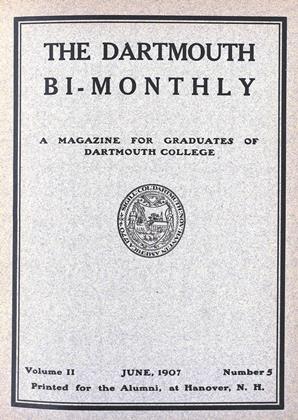Discussion of the first session was upon the first topic on the program: The first year in chemistry and the relation between the school and college. Under this general heading were grouped many interesting sub-topics and the speakers made their own selection of phases of the subject particularly interesting to them. Two lines of discussion developed which were prominent throughout the conference: "he amount of fundamental theory or beginners, and the time at which it should be introduced. In general the college men emphasized the importance of basing chemical instruction on the periodic law with emphasis on the atom, molecule and chemical equation at the very beginning. Many of the secondary teachers agreed with this while others believed it best to keep these things in the background until the properties of chemicals were learned by observation in the laboratory. It was also pointed out that the problem of dealing with those pupils who do not intend to go to college and with those who do is a double one. Discussion was lively on these two points and the session closing at 5:39 was too short.
The inspection of the chemical laboratories and the discussion relative to the conduct of laboratory work proved to be of great interest to all members of the conference. The administrative details of the laboratory, the buying and storing of chemicals were discussed. Sets of apparatus for beginners were displayed and systems of laboratory management from the standpoint of college and secondary school explained. Attention was given to the importance of having everything in readiness for the class when it enters the laboratory and to the supervision of the work done by the class. In this informal way many helpful ideas were exchanged and the session was very profitable.
On Saturday morning the discussion of the classroom side of the work was resumed. Qualitative analysis and its place in the curriculum was first taken up. It was pointed out that qualitative analysis affords a means of introducing the student to a large variety of chemical reactions with great economy of time and the use of simple and inexpensive apparatus. It also affords abundant opportunity to teach chemical theory. This subject is not of general interest to secondary teachers as it must be preceded by a beginners' course and is not extensively taught on account of lack of time. The value of visiting manufacturing plants and seeing chemical processes in operation on the large scale was discussed. This method of stimulating interest was very popular although the lack of opportunities for its extensive practice was recognized. The amount of theory to be taught was again introduced and caused much lively discussion. The statement was made that girls were better fitted to cope with theory and therefore more interested in it than were the boys. This suggested the problem of teaching chemistry to girls and the session closed with many short, interesting speeches on this subject.
Others who took part in the discussion of the chemical session besides those whose names appear upon the program were: Bessie B. Bowers,Montpelier, Vt.; Edith Fernald, Concord, N. H., Wilhelm Segerblom, Exeter, N.H.; G. A. Hutchins,Melrose, Mass., N. Henry Black, Roxbury Latin School; Dr. Leslie D. Bissell, St. Paul's School.
On Thursday evening Professor Bartlett of the chemistry department delivered an interesting lecture on "The Alchemists." This lecture is the result of a great deal of painstaking collection and selection of material from many sources. It shows the alchemist from all standpoints, the patient worker, the impostor. It explains the origin of much modern chemical nomenclature and of many forms of apparatus in use at the present time. It emphasizes the futility of work without method. Quotations from original works picture the hopeless confusion of the alchemist's mind or the attempt to deceive with high sounding phrases. The lecturer has Spared no pains to present an excellent collection of lantern slides from originals in many galleries, and these pictures accompanied by a careful explanation of the significance of their details leave with the hearer a vivid idea of the period.
Article
-
 Article
ArticleENGAGEMENTS OF PRESIDENT NICHOLS
December, 1914 -
 Article
ArticleADDRESSES WANTED
January 1922 -
 Article
ArticleNew Dartmouth Etchings
November, 1930 -
 Article
ArticleFranklin Smallwood '51 Aide to President Dickey
July 1957 -
 Article
ArticleSaigon Goes Green
September 1993 -
 Article
ArticleTHE UNDERGRADUATE CHAIR
May, 1926 By L. J. Heydt









